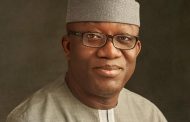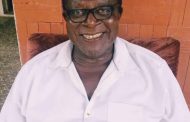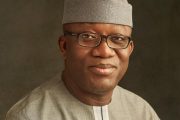It is one more anniversary of the late engaging academic, Yusuf Bala Usman, (YBU) and the many paradoxes around his person, scholarship and radical activism, coinciding with alarming signals about Nigeria. One of the paradoxes is how it happened that someone reckoned with by a Mahmood Mamdani recently as having refreshing ideas did not establish himself in academia in the same manner that a Claude Ake, for example, did, very much beyond Nigerian centres of knowledge production. Somehow, as one of the members of his own caucus in Ahmadu Bello University, Zaria is fond of saying, YBU did not even bother to take a sabbatical at say, the University of Lagos or Benin or Ibadan. And he did not send any of the members of his caucus either. It was part of the practice in those days for some students of the Department of History of ABU, Zaria to go for their Masters Degree at the University of Ibadan. The idea was to avoid in breeding. It is not clear if this was the late Dr YBU’s idea or the idea of the students involved. Though this is subject to clarification, there are no places, (universities) where a research agenda tied around his scholarship is flourishing. Why? Might the kind of History scholarship he pursued account for this? He said he was in what his colleagues would regard as contemporary History rather than the orthodox kind of History that the discipline is more likely to celebrate.

The Constitutional framework he and Prof Segun Osoba,his collaborator, handed down to the Nigerian ruling class but which the Obasanjo military regime dismissed
From that paradox of a controversial scholar who is flourishing more in politics than in scholarship comes the other controversies and paradoxes. One of it must be his own strategy of the Nigerian revolution. He argues for compelling the Nigerian ruling class to behave itself in terms of nationalist management of the nation. But he sought understanding the Nigerian ruling class in their regional constitution too. That was how he went on to formulate the Northern Oligarchy thesis. As articulated by YBU, the Northern Oligarchy is made up of people who are in positions they occupy not by merit but by blood ties, their exploitation of privileged location in the colonial process and their contempt for other Nigerians, particularly the Talakawa.
But this was rejected by his fellow radicals, especially at Obafemi Awolowo University, Ife and by the group of radical academics opposed to him in the North, especially the Zaria Group based right in the old Faculty of Arts and Social Sciences, (FASS). While the Ife Collective disagreed with the idea of Northern Oligarchy, Yoruba Financial Oligarchy and similar concepts and the practices they imply for the reason that it amounted to regionalizing class struggle, the Zaria Group described the Northern Oligarchy thesis as something of an analytical hallucination, wondering where else on earth people make it in capitalism outside blood ties, connections and sundry privileges of those nature. The late Raufu Mustapha, in particular, contrasted the concept of Northern Oligarchy to the concept of Kaduna Mafia, voting for the concept of Kaduna Mafia as developed by Prof A.D Yahya on the ground that it was a more precise and a fitting class analysis.
The paradox is how the dynamics have worked out that today, YBU’s operationalisation of taking the ruling class apart in their various regional expressions is at the heart of Nigerian politics. Bala Usman’s concept of the Northern Oligarchy is all that is there to politics today for a large chunk of the radicals and for the entire ruling class except their Hausa-Fulani component. So, how did the rejected stone become the corner stone? Collective opportunism on our part? Expediency? Intellectual crassness or organised forgetfulness?
While those enjoying the usage of Northern Oligarchy or Hausa-Fulani hegemony would secretly admire BYU, constructivists would surely accuse him of creating a monster through discourse. It doesn’t matter that the Northern Oligarchy is not what has triggered current alarm and bedlam over Fulanisation and Islamisation within the ruling class but the Kaduna Mafia to which President Buhari belongs. That is Kaduna Mafia as a class fraction rather than the generic sense of the word mafia. Yet, Buhari was brought back by the Super Five, (Obasanjo, TY Danjuma, IBB, Abdulsalami and Aliyu Gusau). If they collectively said no, 2015 would have gone a different way. Instead, they united behind Obasanjo in spite of their own internal quarrels.

Testament of members of his own intellectual circle
 Of course, there is the paradox of how YBU was challenged and charged with ethnocentrism. It arose mainly from his anti-foundationalist stance in making sense of ethnic identities in contemporary Nigeria. Although he said what every other credible scholar of ethnicity has said – the constructedness of those identities by both the colonial process and the post colonial elite – his infuriated colleagues like Bolaji Akinyemi and Peter Ekeh who took him on for saying that and for adding that oil deposits have nothing to do with where they are found today but a process that took time across space.
Of course, there is the paradox of how YBU was challenged and charged with ethnocentrism. It arose mainly from his anti-foundationalist stance in making sense of ethnic identities in contemporary Nigeria. Although he said what every other credible scholar of ethnicity has said – the constructedness of those identities by both the colonial process and the post colonial elite – his infuriated colleagues like Bolaji Akinyemi and Peter Ekeh who took him on for saying that and for adding that oil deposits have nothing to do with where they are found today but a process that took time across space.
Some of those who worked directly with him might also still argue that he could not have become fundamentally different from being the arrogant, feudal chauvinist that they said he was. Some even went as far as questioning his radicalism, saying it was his grudges from feudal wrangling back home. But it is the sort of view that members of his own intellectual circle would not buy for a penny. In the pamphlet A Fountain of Inspiration, a 2005 publication edited by two of them, Alkasum Abba and Saidu Adamu who is also late now, is a sumptuous repertoire on YBU. One of the points in the publication is how YBU came to be seen as domineering. Alkasum and Adamu describe Dr. Bala as an unfathomable mine of information, someone who had a file on all subjects and all manner of people and who read on whatever a prospective engager sought to discuss with him. Any such engager who failed to do his or her homework and came to the engagement unprepared would have to be ready to discuss Bala’s own perspective because “he would have researched, read or otherwise thought one out”.
Of course, he engaged in a series of debates with other scholars, most notable of which must be the one on the responsibilities of political and other sciences in Nigeria which was with Prof Sam Oyovbaire; then the debate with Prof Odama, Alhaji Shehu Shagari’s Chief Economic Adviser on who was/is responsible for Nigeria’s economic crisis in the way it was manifesting in 1981 and then the same issue became a huge debate between him and Dr Yusuf Bangura who was teaching in the Department of Political Science at ABU, Zaria then. This is not to forget the attack on him over his thesis of The Manipulation of Religion in Nigeria by Dr Sabo Bako who is also late now.
As it is today, not only have both the radicals and right wing elite taken to the concept of Northern Oligarchy that he developed, baptized it as Hausa-Fulani Hegemony and then absolutised it to the point of denying it of any dynamism whatsoever.

 It would not have been surprising or worrisome if all the rancor and threats over Hausa-Fulani Oligarchy were solely by politicians. Unfortunately, it is not. Intellectuals with claims to capacity for critical analysis are also part of it as well as activists with claims to radical orientation. The question is whether they do not accept that all such concepts have no static meaning but keeps changing in meaning. For instance, the concept of Northern Oligarchy would not have the same meaning and emotional significance it has today if an Alhaji Balarabe Musa, for instance, were the president of the Federal Republic of Nigeria. The tragedy, however, is that the rest of Nigeria always prefers somebody from the NPC/NPN background rather than someone from say the NEPU/PRP background but only to turn around and complain.
It would not have been surprising or worrisome if all the rancor and threats over Hausa-Fulani Oligarchy were solely by politicians. Unfortunately, it is not. Intellectuals with claims to capacity for critical analysis are also part of it as well as activists with claims to radical orientation. The question is whether they do not accept that all such concepts have no static meaning but keeps changing in meaning. For instance, the concept of Northern Oligarchy would not have the same meaning and emotional significance it has today if an Alhaji Balarabe Musa, for instance, were the president of the Federal Republic of Nigeria. The tragedy, however, is that the rest of Nigeria always prefers somebody from the NPC/NPN background rather than someone from say the NEPU/PRP background but only to turn around and complain.
Why should that be worrisome? It should be worrisome because that is the sort of collective opportunism that drove the rest of Nigeria to subvert the zoning principle for which people like Olu Onagoruwa paid very dearly by installing Dr. Goodluck Jonathan only to return right to Katsina after six years to pick General Buhari against whom they are up in arms now over Fulanisation, nepotism and over all bungling.
What all these show is the complexity of the Yusuf Bala Usman persona. So complex as to be difficult to say if he would now be a hero, a villain or all of the two were he to be still alive today. Would he have mellowed into a voice of moderation, of consensus and intellectual of statecraft rather than an agitated scholar that he was for most of his life?
History is never written once and for all. There will never be a conclusive account of what Bala Usman actually stood for. The meaning of Bala or any other individual for that matter will keep changing from time to time. The most crucial variable is the context in which he said or did whatever he said and did. Unfortunately, the context is what is missing from the political uses of Bala’s concepts and practices. May his soul never rest in peace but remain as restless enough in terrorizing our oppressors.




























